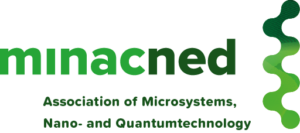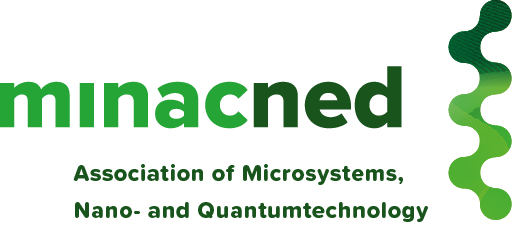Dutch State Secretary Mona Keijzer expects this financial support for innovation to help several dozen new knowledge-intensive companies get off the ground in the coming years.
Bart Brouwers
The Dutch government is allocating 24 million euros for start-ups that can grow thanks to knowledge from research. Three collaborations between innovative companies, universities, other knowledge institutions, and (venture) investors in the field of artificial intelligence (AI), Medtech, and water technology are involved. This is the second tender of the so-called Thematic Technology Transfer (TTT) scheme.
In September 2019, the Dutch government made the same amount available for collaborations in the fields of regenerative medicine, smart systems, and circular solutions. According to the government, this support has now led to the first investments such as in a startup developing a biological drug against thrombosis.
The Netherlands Enterprise Agency and the Netherlands Organisation for Scientific Research (NWO) selected the three consortia. Each consortium will receive 8 million euros of the available 24 million euros.
1. Artificial intelligence
The first collaboration will focus on the application of artificial intelligence within the themes of healthcare and security. Coordinated by the University of Amsterdam, five Dutch universities, four university medical centers, the Center for Mathematics and Computer Science, and the Eindhoven-based venture investor LUMO Labs will participate.
TTT.AI is intended to become the Dutch counter for AI startups that originate from a knowledge institution. “With this AI consortium we can successfully bring more AI initiatives from our knowledge institutions to the market and to society,” says Peter Westerhuijs, project leader of the consortium and business developer at IXA-UvA.
Andy Lürling, Founding Partner of LUMO Labs, says that his investment fund is already working extensively with knowledge institutions. “Thanks to this TTT.AI consortium, together we are much better able to identify promising initiatives and give them a flying start. Pioneering research and innovative development in the field of AI can thus find their way into society faster and better. Early-stage funding is indispensable to make the step from idea to impact.”
2. Medical technology for better diagnoses
A consortium of the four technical universities, university medical centers in Rotterdam, Nijmegen, and Maastricht, and the Amsterdam-based venture investor Innovation Industries are joining forces for more successful medical technology. They are building a national and open program that will bring together the right knowledge and expertise at an early stage and accelerate the market passage of medical technology innovations for better or less burdensome diagnoses and treatments, for example.
3. Water technology for energy reuse and storage
Netherlands Enabling Water Technology (NEW), the consortium for water technology, will also receive €8 million. The consortium consists of Wetsus, University of Groningen, Deltares, and Investment and Development Company North Netherlands (NOM). NEW stimulates startups with initiatives in the field of water technology to accelerate the transition to a circular, sustainable and climate-neutral economy, for example in the field of water and raw materials reuse and production and storage of energy from water.
The NEW plan consists of two parts: knowledge transfer and a fund. The partners in the knowledge transfer part will scout promising knowledge startups, have them develop at an accelerated pace and nominate the most promising startups to the NEW fund. “Without the financial support from the NEW fund, many good ideas in the water technology field will ultimately not make it to the market,” said an explanation from NEW. “Through the combined knowledge and broad expertise, stronger innovations will be developed by the knowledge starters. This, in combination with the NEW fund managed by NOM, will lead to more promising knowledge startups and a faster transition of startups to the growth phase.”
“The Netherlands as an innovation leader”
State Secretary Mona Keijzer expects that with this targeted financial support for innovation, several dozen new knowledge-intensive companies can get off the ground in the coming years. “The Netherlands is Europe’s innovation leader and we want to remain so. This scheme focuses on technological cooperation between science and entrepreneurs and gives a boost to our future jobs and income. It is important that we focus on innovation for both the short and long term in the current economic crisis.”
Original article: Innovation Origins

